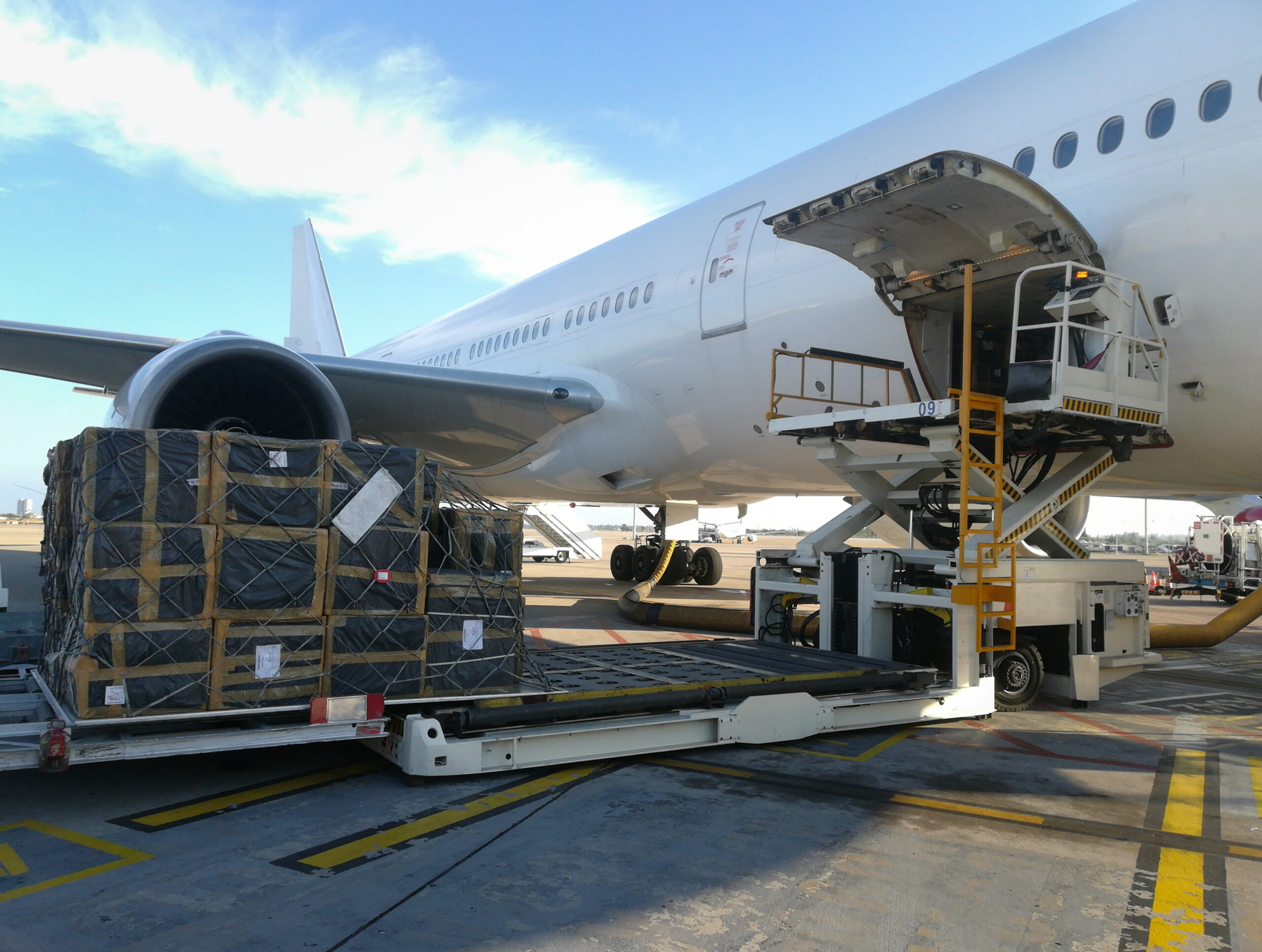In an attempt to address air quality concerns, California’s Air Resources Board (CARB) has begun mandating a transition to zero-emissions trucks. It is unlikely that the mandated transition to zero-emission trucks will be solely a California issue. CARB is expected to adopt a revised version of Advanced Clean Fleets, meaning the revised regulation is expected to be final soon. What are the ACF compliance options and requirements, and what should affected companies do now to prepare?
10 W. Market St, Ste. 1400
Indianapolis, IN 46204
Scopelitis’ Transportation Brief® is intended as a report to our clients and friends on developments affecting the transportation industry. The published material does not constitute an exhaustive legal study and should not be regarded or relied upon as individual legal advice or opinion.
Scopelitis attorneys on the latest transportation industry news and trends.
Scopelitis attorneys are often invited to participate in meetings with transportation industry leaders. Learn more about their trips this quarter.
10 W. Market St, Ste. 1400
Indianapolis, IN 46204
Scopelitis’ Transportation Brief® is intended as a report to our clients and friends on developments affecting the transportation industry. The published material does not constitute an exhaustive legal study and should not be regarded or relied upon as individual legal advice or opinion.
10 W. Market St, Ste. 1400
Indianapolis, IN 46204
CARB Plows Ahead with Zero-Emission Regulations
California has had pressing air quality issues for decades, and the federal Clean Air Act gave the state special authority to enact vehicle emissions standards provided it received a waiver from the U.S. Environmental Protection Agency (EPA). In an attempt to address air quality concerns, California’s Air Resources Board (CARB) has begun mandating a transition to zero-emissions trucks. While compliance presents daunting challenges and questions of feasibility with respect to operations in California, the same Clean Air Act allows other states to adopt California’s standards. Therefore, it is unlikely the mandated transition to zero-emission trucks will be solely a California issue.
In 2021, CARB imposed a regulation (Advanced Clean Trucks or ACT) requiring an increasing percentage of new trucks sold in California to comply with zero emissions. EPA granted a waiver in the spring of this year. CARB has also adopted a companion Advanced Clean Fleets (ACF) regulation to require fleets to transition to zero-emission vehicles. The ACF was recently re-opened, with a comment period that ended August 21st, to make some minor technical changes. Thereafter, CARB is expected to adopt the revised version and submit the package for final approval to California’s Office of Administrative Law, meaning the revised regulation is expected to be final soon.
In short, the ACF requires larger fleet owners to transition toward zero-emission trucks under one of two compliance options. The first requires new trucks added to a fleet operating in California (even if minimally) to be zero-emission trucks. The second option requires zero-emission trucks to be an increasing percentage of the fleet of trucks operating in California based on a vehicle type and specified timeline. The ACF further requires hiring entities (e.g., brokers or shippers) to verify the fleet they contract with is compliant with the ACF. Finally, the ACF requires a more abrupt transition to zero-emission drayage trucks. For example, subject to limited exemptions and extensions, drayage truck operators will only be able to add zero-emission drayage trucks to their fleets that operate in California and will only be able to use existing diesel drayage trucks for a limited amount of time based on engine model year or mileage.
The ACF and a recent agreement between the truck manufacturers and CARB to comply with the ACT sales requirements regardless of the outcome of pending legal challenges pose complex challenges to trucking companies and hiring entities. While legal challenges are expected, affected companies should be considering compliance strategies that preserve flexibility now.
TSA Invites Shippers to Join Screening Program
As reported in the TSA Tightening Screening Rules for Air Cargo Exports article featured in the Spring 2023 issue of The Scopelitis Transportation Brief, the Transportation Security Administration (TSA) has announced that its policy of permitting “impracticable to screen” cargo (referred to as ITS cargo) to be exported from the U.S. by air is ending on October 31st, 2023. Thereafter, ITS cargo can only be exported by air if it is accepted from a shipper that participates in the Certified Cargo Screening Program (CCSP).
On August 8th, 2023, TSA published a notice inviting shippers to join the CCSP. The agency has also conducted outreach meetings and calls with potential CCSP participants. Forwarders doing business with customers shipping ITS cargo are encouraged to address this issue proactively and before the new rule goes into effect. Currently, TSA’s position is that those customers will need to be approved by TSA to join the CCSP by no later than October 31, 2023; otherwise, their ITS cargo cannot be exported by air.
The approval process can take months to complete.
New Standard for FLSA Collective Actions in Sixth Circuit
The Fair Labor Standards Act (FLSA) requires employers to pay minimum and overtime wages and allows a plaintiff to bring a “collective action” on behalf of “similarly situated” employees. Before proceeding as a collective action, the court determines whether the employees in the collective action are similarly situated. If so, the employees receive notice of the litigation and must then opt-in to participate.
Many courts apply a lenient standard, which typically results in notice being sent to employees. The Sixth Circuit, which covers Kentucky, Michigan, Ohio, and Tennessee, recently rejected a lenient standard and adopted a new standard under which the plaintiff must show a “strong likelihood” that the employees are similarly situated to each other.
The Sixth Circuit’s recent decision is a step toward leveling the playing field and provides employers a more realistic chance of defeating notice to opt-in plaintiffs.
FMCSA Signals It May Use CSA Scores for Carrier Safety Fitness Ratings
The Federal Motor Carrier Safety Administration (FMCSA) recently issued an advance notice of proposed rulemaking and request for comments indicating that it was “interested in developing a new methodology to determine when a motor carrier is not fit to operate.” Currently, motor carriers receive one of three safety ratings—Satisfactory, Conditional, or Unsatisfactory—based on the FMCSA’s findings made during safety audits. In the recent notice, the FMCSA stated it would consider whether to use a motor carrier’s Safety Measurement System (SMS) scores, which are part of the broader Compliance, Safety, Accountability program, to determine a motor carrier’s safety rating.
The notice, issued just months after the FMCSA proposed substantial changes to the CSA scoring system itself, suggests the FMCSA may be considering a major overhaul to its process for identifying carriers who are unfit to operate. Given the concerns raised over the accuracy of the SMS system, the proposal to use CSA scores to rate motor carriers could potentially subject the carriers to unwarranted and unpredictable safety rating determinations.
Motor carriers are encouraged to submit comments in response to the notice. Contact Scopelitis if you need assistance in doing so.
Spotlight: Scopelitis Class Action Defense & Complex Litigation
Litigation is a drain on businesses. Plaintiffs continue targeting the transportation industry with class and collective action lawsuits across the country. Scopelitis helps clients navigate this treacherous legal environment by applying its vast transportation and litigation experience to resolve matters efficiently by tailoring its approach to each case to address the unique objectives of each client.
Scopelitis Law Firm’s Class Action Defense & Complex Litigation attorneys litigate—and have gone to trial on—major issues that transportation, logistics, and warehousing companies face throughout the country, including:
- Worker misclassification claims
- California wage and hour claims
- PAGA claims
- Minimum wage and overtime claims under the Fair Labor Standards Act
- Minimum wage and overtime claims under various state laws
- Deduction and business expense reimbursement claims
- Workplace and data privacy claims
- Federal preemption of state laws
- Claims for violation of state business opportunity and consumer protection laws
- Arbitration-related issues
The Firm’s expansive work on these issues has resulted in a deep understanding of the available defenses that are specific and unique to the industry, including:
- Overtime exemptions under state and federal law
- Federal preemption of state meal and rest break laws
- Enforcing class and collective action waivers
- Compelling arbitration under the Federal Arbitration Act and equivalent state laws
- Determining if and how state wage and hour laws apply
For more information on how Scopelitis can help protect your business when plaintiffs target you, contact Scopelitis Partners James Hanson, Andy Butcher, Adam Smedstad, Angela Cash, or Chip Andrewscavage.
Presenters: Jim L. Golden,
Jim Golden will provide educational instruction during the negotiation course classes at Harvard Business School on November 1 – 2, in Cambridge, Massachusetts.
Attendees: Donald J. Vogel, Kathleen C. Jeffries, Fritz R. Damm,
Don Vogel, Kathleen Jeffries, and Fritz Damm will attend the Transportation Lawyers Association’s Transportation Law Institute, October 26 – 28, in Salt Lake City, Utah. Kathleen and Fritz will also participate in the Executive Committee Meeting.
Attendees: Donald J. Vogel, Fritz R. Damm,
Attendees: Michael D. Reed, Michael McFarlane,
Attendees: Robert J. Henry,
Binaural Bickering? Two Perspectives on Hearing Loss Claims.
Presenters: Mary Beth Hughes,
Attendees: Michael D. Reed, Martin Wolf O’Connor,
IC Relations: Do’s, Don’ts & Best Practices
Presenters: Gregory M. Feary,
Attendees: Michael J. Tauscher,
Load Shift: An Examination of Changing Risk and Litigation Trends in the Transportation Sector
Presenters: Steven F. Stanaszak,
Attendees: Jay R. Starrett,
Scopelitis Partner Prasad Sharma authored a research paper published by the U.S. Chamber of Commerce Institute for Legal Reform detailing the worsening litigation landscape for U.S. trucking and logistics companies and offering policymakers a number of legal reform measures that may provide a more efficient and fair civil justice system for all parties. See the research, Roadblock: The Trucking Litigation Problem and How to Fix It, at ILR’s website.
David Robinson reports that effective August 30th, 2023, employers must return to in-person physical document examination and must have completed any remaining physical document inspections for employees whose documents have only been inspected remotely. Beginning in 2020, the Department of Homeland Security allowed employers to defer the physical inspection requirement in recognition of the remote work setting caused by COVID-19, but this flexibility has now ended. An alternative procedure continues to apply for those qualifying employers enrolled in E-Verify and meeting certain requirements.







